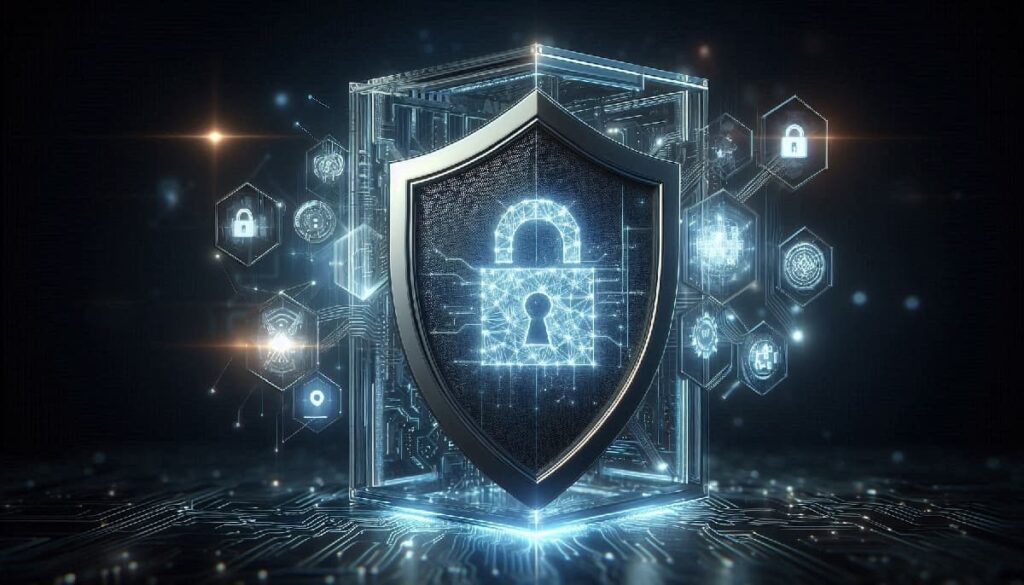Blockchain, known for its role in cybersecurity, fintech and cryptocurrencies, begs the question: is it secure? Absolutely! Thanks to its decentralized nature, encrypted transactions and transparency, blockchain guarantees data integrity and protection against tampering, making it a top choice for secure technology.
Blockchain is often celebrated as a pioneer of the future in cybersecurity, financial technology and cryptocurrencies. However, a frequently asked question regarding the technology is: is blockchain secure? Most certainly! Here’s why:
At the heart of blockchain is its decentralized network of computers recording transactions in a way that makes them (almost) impervious to tampering. The data is constructed in a form where each “block” is linked to the one before it, thus forming a chain. To modify or delete a block, one would have to repeat the process for all other blocks, which is extremely difficult in large networks.
Encryption and transparency
The first step in blockchain security is encryption. Each transaction is encrypted and network participants have different cryptographic keys. This would make it difficult for hackers to gain unauthorized access to information. However, beyond privacy, blockchain transparency provides the foundation for security.
In public blockchains (Bitcoin, for example), anyone can see transactions, even if they cannot modify them. Indeed, when something is recorded, it is permanent and accessible to everyone who uses the network.
Public and private blockchains distinctly refer to two different types of security. Public blockchains (such as Bitcoin) and, by extension, more decentralized ones are open to anyone who wants to join and participate in approving new blocks. Private blockchains are strictly regulated and focus on transactions specific to a particular company or group. Both types use extensive security measures, but private networks tend to have additional controls and verifications.
Decentralization is key
Decentralization is another important security advantage of blockchain. Since traditional databases are centralized, they reside in a single location or data center owned by a single entity, making them an easy target for hackers. Blockchain data is stored in multiple places simultaneously, making it more difficult to target all copies at once. Here is the safety harness: all connected by infallible cryptographic chains; therefore, top-notch security measures.
Smart contracts and AI
Similarly, blockchain security supports newer technologies such as smart contracts and AI. Smart contracts, which trigger certain actions once certain conditions are met, are renewable on the blockchain. In short, such self-executing contracts leave no room for tampering or manipulation. The infamous actor would probably get caught somewhere in the process.
The Future of Blockchain Security
As time continues to change, new blockchain security features will continue to evolve as companies continually introduce legal software, fintech, and NFTs to the blockchain. While security features can be created and adapted, blockchain as a technology is proving to be one of the best paths forward in terms of its unbeatable combination of encryption, decentralization, and transparency. It’s simply incredibly secure!
RELATED TOPICS
- What is Blockchain Gaming and its Play-to-Earn model?
- Blockchain in identity management: securing personal data
- Improving Blockchain Randomness to Eliminate Trust Issues
- Regardless of market fluctuations, Web3 infrastructure is booming
- Blockchain networks using API security data to mitigate Web3 threats

